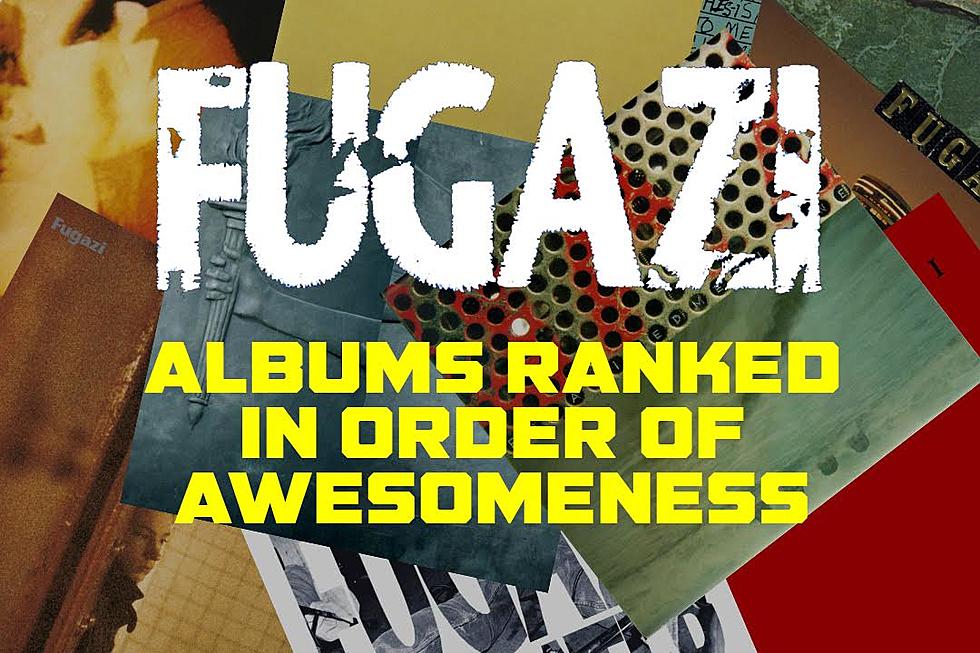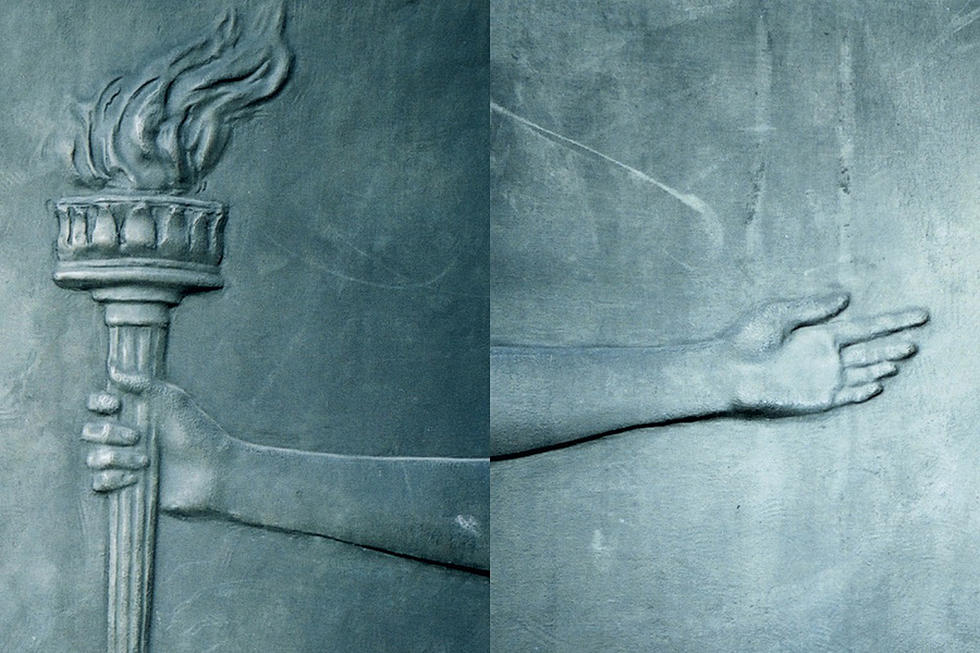
30 Years Ago: Fugazi Is Born
Some punk bands in the '80s were formed as a courier for the distinct purpose of delivering a subversive ideological edict. Others established themselves as a channel through which to vent the confusion, rage, and anxiety bred by hostility to the absurd security of conformist culture. Most didn’t know quite what they were doing, but had no better place to dispense their unrepentant lack of sophistication and maniacal tendencies.
It’s tempting to place Fugazi in the first category. After all, they emerged amid the ashes of the hardcore punk movement offering the acute socio-political commentary shared by their hardcore forebears – although executed with heady screeds, as opposed to manic mantras. Fugazi might seem to some the musical equivalent to Haymarket Press, but the anatomy that constitutes Ian MacKaye, co-guitarist and co-vocalist Guy Picciotto, bassist Joe Lally and drummer Brendan Canty is grounded far more in the nurturing of an authentic artistic identity continually reshaped and built upon.
The politics were integral but artfully inexplicit. Far from being merely a musical communiqué, Fugazi’s lyrical, musical and ethical expressions were the products of artistic self-actualization, at least as much as ideological conviction.
MacKaye’s pre-Fugazi whereabouts offered an early glimpse of this. Performing bass duties for the Teen Idles, MacKaye founded Dischord Records – an ad hoc enterprise for releasing his own work – in 1980. Although still a teenager, neither operation proved satisfactory. He spent the following three years asserting his counter-countercultural identity fronting Minor Threat, which would breed the defiantly clean “straight edge” insurrection while issuing some of hardcore’s quintessential recorded documents. Meanwhile, he transformed Dischord Records from a strictly utilitarian personal distribution arm to a curated network of bands of like character, playing a key role in sculpting the era’s Washington, D.C., sound.
Yet, it would be a mistake to frame Fugazi’s birth as simply an outgrowth of hardcore. Though still somewhat distant from the genre-twisting, noise-prone aesthetic posed on the Repeater LP, not even the early-draft punk revisionism of the preceding Fugazi and Margin Walker EPs can be explained as an extension of early-'80s hardcore alone. To suggest otherwise is to ignore the brief but consequential intervening years that stitched an emotional self-exploration between Minor Threat’s confrontational angst and Fugazi’s scheming discord.
Following Minor Threat’s short-lived existence, Ian MacKaye took a stylistic turn that was even briefer, but one that situated him in a burgeoning—and decidedly emotive—scene where he would make the acquaintance of his future Fugazi companions. Dubbed the “Revolution Summer” by post-hardcore nostalgists, the summer of 1985 saw a flurry of D.C. acts sprout up in hardcore’s twilight, forging a sound that retained the visceral rage of punk rock but interchanged the frenetic tempos and seditious anthems with raw melodic strides and contemplative emotional vulnerability.
MacKaye had ascended that pivotal summer with the outfit Embrace, bridging his former life as hardcore stalwart and D.C.’s shifting music scene by mingling his guttural vocal ferocity with brighter tonal bellows. Guy Picciotto and Brendan Canty, who emerged as vocalist and drummer for Rites of Spring, respectively, a year prior to the fleeting revolution, penned its central artifact with Rites of Spring’s self-titled LP featuring “For Want Of,” 1985 D.C.’s de facto post-hardcore theme.
But, as D.C. summers do, the capitol’s Summer Revolution ended too early. Some principal actors were dispersed into obscurity, while others into newly rejuvenated alliances. Such was the case when and Ian MacKaye reached this time for the guitar and sought the bass accompaniment of Joe Lally, a roadie for disbanded D.C. Revolution fixture Beefeater, and started jamming at MacKaye’s practice space. Restraining the traditional impulse to churn out rapid-fire punk numbers, the two wandered through free-form improvisational tangents, exploring experimental noise episodes, reggae-inflected trudgens and atonal textural touches, challenging their shared hardcore punk instincts. The experiment came to fruition with Rites of Spring alumni, Picciotto and Canty.
Acronymic for a sentence (“F---ed Up, Got Ambushed, Zipped In”) excerpted from the book, Nam: The Vietnam War in the Words of the Men and Women Who Fought There, political disaffection is baked into the band’s very name. Their idealism was reinforced by their strict low-cover-charge show policy and principled DIY ethic. But while their actions speak with a militant bluntness, the messages driving the lyrics were formulated with poetic ambiguity.
“We’re responsible for the presentation and others are responsible for the presentation,” Picciotto told Melody Maker in 1989. “It comes down to a question of respecting your audience, of letting them figure things out for themselves, rather than ramming it down their throats.”
The lasting impact of MacKaye’s whirl with Minor Threat or Picciotto and Canty’s with Rites of Spring is striking when considering the brevity of either band’s existence. But where Minor Threat and Rites of Spring sparked movements carried by waves of bands in their image, Fugazi shouldered its own 14-year-long insurrection – both outliving and outgrowing the post-hardcore rubric. 13 Songs, the collection that weds the Fugazi's first two EPs, placed next to Repeater or Steady Diet of Nothing illustrates a series of contrasts stark enough to be read not in linear fashion but as self-contained dispatches from separate hardcore dissection labs. Red Medicine and The Argument, potentially Fugazi's two most crucial releases, likewise capture two entirely different sonic stories.
Declaring indefinite hiatus in 2003, Fugazi closed the book after having become one of the most impactful and yet incomparable bands to have traced (and revised) the contours of punk rock music.
Fugazi Albums Ranked in Order of Awesomeness
More From Diffuser.fm









